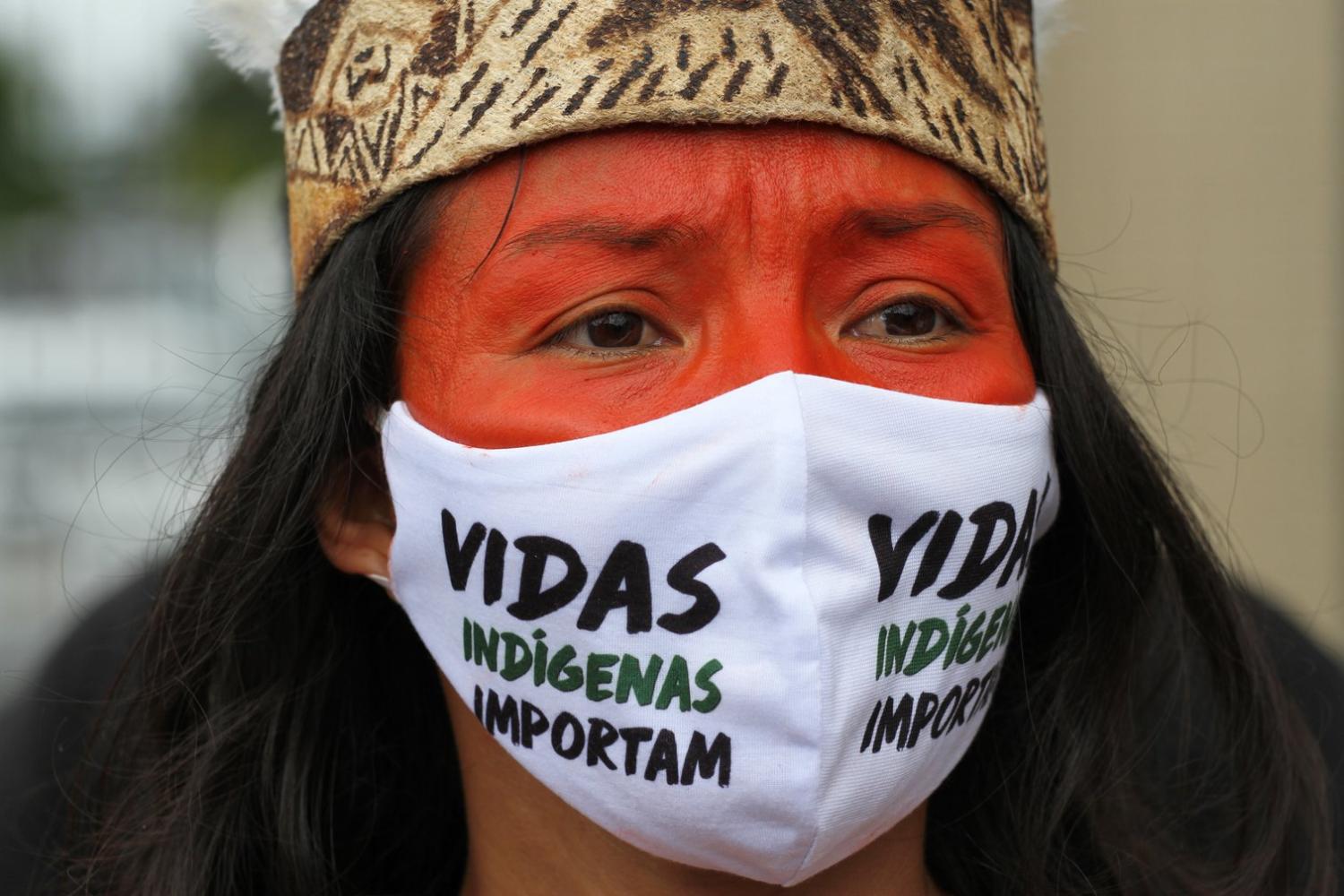The COVID-19 Pandemic Intensifies Shortcomings of Arbitrary Country Distinction in Equator Principles’ Social and Environmental Risk Assessment

In a recent letter submitted to the Equator Principles Association (EPA), First Peoples Worldwide and several signatories advocated for Indigenous rights and environmental protections by asking the EPA to provide additional, specific guidance to ensure that projects in all countries are benchmarked against the highest standards as the world faces the ongoing impacts of the COVID-19 pandemic.
First Peoples has long advocated for improvements to the Equator Principles (EPs) – a social and environmental risk assessment framework adopted by over 100 international financial institutions (EPFIs) bankrolling development projects. When the fourth round of revisions (EP4) was announced in 2019, First Peoples took part in stakeholder engagements in London and Toronto, and submitted guidance and further resources to improve the human rights purview of EP4, especially as it pertains to the free, prior and informed consent of Indigenous Peoples, and insofar as it operationalizes the UN Guiding Principles on Business and Human Rights (UNGPs) and UN Declaration on the Rights of Indigenous Peoples (UNDRIP).
While the final version of EP4 was weak in these areas, implementation was postponed to October 1, 2020, to give signatory financial institutions time to factor in effects from the COVID-19 pandemic. During this time, First Peoples in partnership with BankTrack, Rainforest Action Network and other organizations has continued to engage with the EPA to call for more robust guidelines on the implementation of EP4.
In the letter, First Peoples again urged the EPA to remove the arbitrary “Designated” and “Non-Designated” country distinctions. These distinctions allow financing for projects that occur in Designated Countries, including the United States, to rely on the social and environmental risk assessment regimes in those host countries, rather than benchmarking risk review against IFC Performance Standards or international norms.
As a result of COVID-19, many host countries have relaxed regulatory regimes for social and environmental review, raising concerns that EPFI reliance on these regimes is misplaced and will adversely affect communities in the long term, including Indigenous Peoples. Where host countries seek development to spur economic development at any cost, EPFIs should be held to a higher standard.
The letter cites to the example of Executive Order 13927: Accelerating the Nation’s Economic Recovery from the COVID-19 Emergency by Expediting Infrastructure Investments and Other Activities, issued June 4, in which the U.S. President directed federal agencies to bypass environmental review requirements under the auspices of the flailing economy. Companies can now take advantage of loosened requirements, potentially resulting in a surge of development projects that have not been properly assessed for environmental, social and human rights risk. This is all occurring at a time when Indigenous Peoples and marginalized communities are being disproportionately impacted by the pandemic, regardless of what country they live in.
Since the U.S. is listed as a “Designated Country,” an EPFI would be in technical compliance with the revised EPs if it relied on the U.S.’s loosened environmental assessment to finance a project. This is in conflict with the spirit of the EPs framework which asks signatory financial institutions to respect human rights, as in line with the UNGPs, to support the objectives of the 2015 Paris Agreement, and to support norms set forth in UNDRIP.
The pandemic has magnified the arbitrary nature of the distinction between “Designated” and “Non-Designated” countries and has illustrated the need to forego this distinction at least for the coming period in which the world is struggling with the pandemic. Where entire communities and local economies are being forever changed due to COVID-19, the EPA must ensure that EPFIs are financing projects with the highest degree of alignment with the UNGPs, UNDRIP, and other international norms if the EPs are going to continue to serve as the minimum standard for social and environmental risk assessment.
Photo via OpenDemocracy.net.

